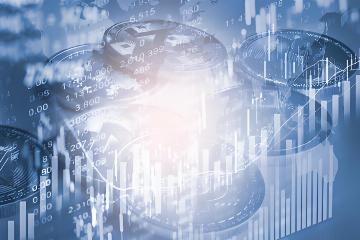The recent comments made by German Vice Chancellor and Minister for Economic Affairs, Robert Habeck, have stirred significant conversations across Europe concerning energy policies and international trade relationshipsDuring an energy summit in Berlin, Habeck articulated his concerns regarding the continent's reliance on United States energy imports, warning that a dependency similar to that which was once established with Russian energy could lead to coercive tactics and vulnerabilities in Europe’s energy infrastructure.
Historically, Europe has been heavily reliant on Russian energy resources, particularly natural gasThis relationship allowed Russia to wield a powerful influence over European energy security, leveraging pipeline supplies and prices to manipulate the geopolitical landscape
Advertisements
With gas supplies coming from a single source, Europe often found itself in precarious positions during diplomatic tensions with Russia, as disruptions could lead to energy shortages affecting industries and consumers alikeEurope's previous experiences have given leaders a sober understanding of the risks associated with a singular dependency, which has become alarmingly relevant in light of current geopolitical dynamics.
European Commission President Ursula von der Leyen echoed Habeck's sentiments, outlining the detrimental impacts of relying on Russian energy, especially following the disruptions that have led to escalating energy prices and severe economic ramifications throughout the continentThe disruption of Russian energy supplies not only sparked an immediate crisis but has also catalyzed inflationary pressures and a noticeable slowdown in economic growth, underscoring the urgency of diversifying Europe’s energy sources.
In response to directives from the new administration in the United States regarding energy purchases, Habeck made it clear that while cooperation with America is necessary, it should not equate to blind compliance
Advertisements
He stressed the importance of Europe delineating its interests rather than yielding to external pressures, emphasizing the need for a balanced approach in international trade and energy sourcingGermany's strong position highlights an emerging narrative within Europe—a push for sovereignty in decision-making that safeguards its economic interests in a rapidly evolving global landscape.
The trade dynamics between the European Union and the United States reveal an intricate web of interdependenciesIn 2023 alone, EU exports to the U.Sreached €502 billion, while imports were reported at €344 billion, giving Europe a substantial trade surplus of €158 billionThis surplus has captured the attention of U.Spolicymakers eager to address long-standing trade deficits and use tariffs as a negotiating tool
Advertisements
The push for Europe to increase its energy imports from the U.Sis not merely about enhancing bilateral trade relations; it aims to diminish reliance on Russian energy and fortify America’s own energy sector while asserting its influence on the global stage.
However, despite reduction efforts, Europe continues to import significant quantities of Russian gas, showcasing the ongoing challenge of weaning off from this dependencyThe facts are revealing: in 2024, Europe imported 16.5 million tons of liquefied natural gas from Russia, surpassing previous highsThis ongoing reliance underscores the complexity of energy politics in Europe; overcoming this challenge will require considerably more effort than mere policy declarations.
Amidst such challenges, von der Leyen proposed leveraging U.S
liquefied natural gas as a potential substitute for Russian imports, aiming to stabilize and ultimately lower energy prices across EuropeWhile some member states have expressed support for this move, raising concerns about relying on the U.Sas a substitute source carries its own risksThe unpredictability of U.Spricing structures, coupled with potential disruptions in supply chains, could lead Europe back into a precarious energy security situation, echoing the very problems they now seek to escape.
Europe finds itself at a crossroads within the spheres of energy and international tradeThe challenge lies not only in diversifying energy supplies to fortify its energy independence but also in negotiating with U.Spressures to remedy trade imbalances, all while strategizing a practical exit from Russian dependency

As European nations navigate these intricate dilemmas, collaboration among governments, businesses, and institutions will be paramountDeveloping coherent policies that prioritize national interests while simultaneously fostering a diversified energy portfolio is essential for sustainable growth.
In conclusion, the ongoing dialogue prompted by leaders like Habeck and von der Leyen signifies a pivotal moment for EuropeAs the continent grapples with the dual challenges of securing energy independence while managing external pressures from the U.S., solidifying a strategic path forward will require a delicate balancing actOnly through concerted efforts and innovative strategies can Europe hope to navigate the turbulent waters of the global energy market, ultimately achieving a stance that safeguards its interests and promotes sustainable development in an ever-evolving geopolitical landscape.

Leave A Comment